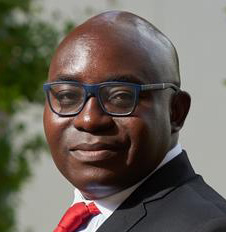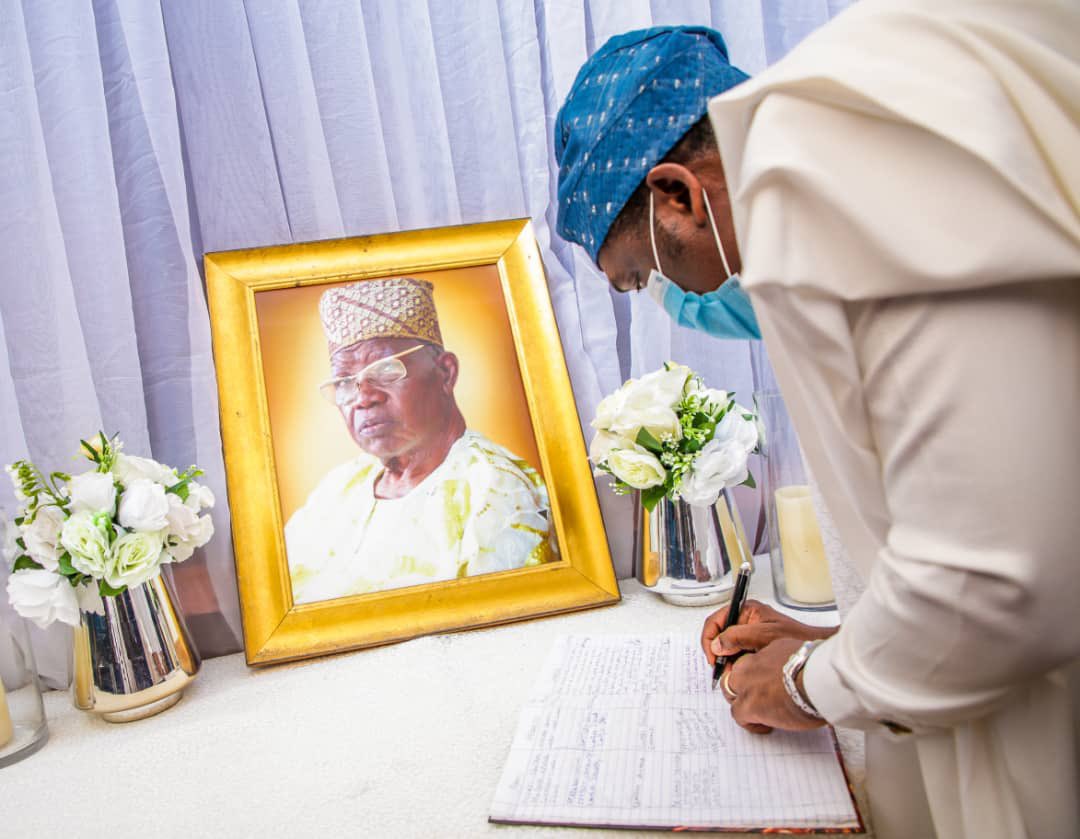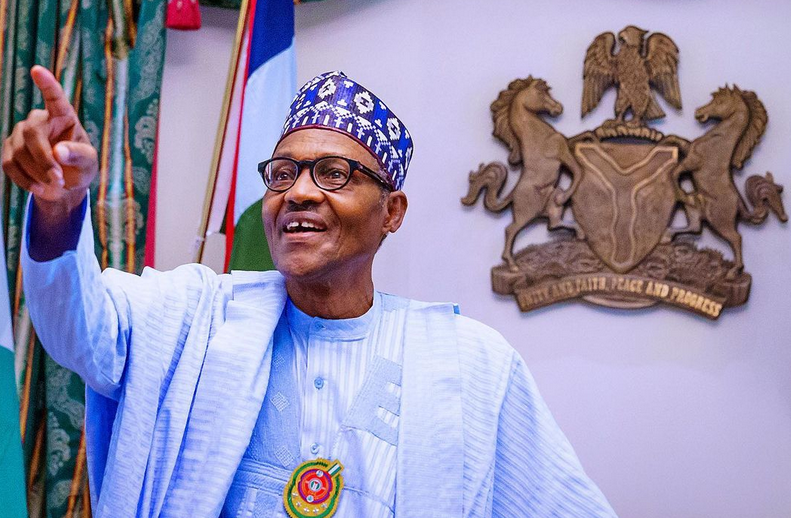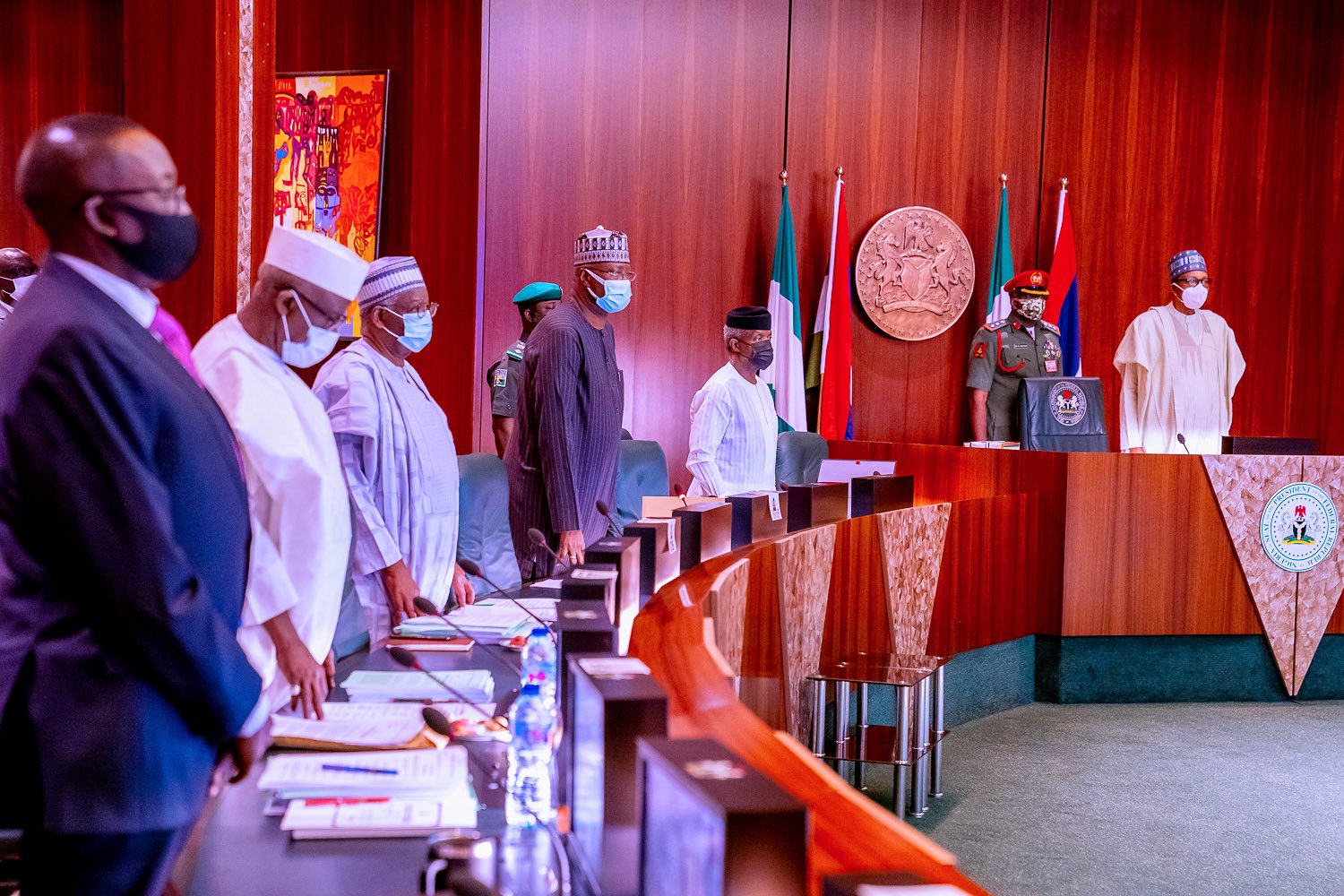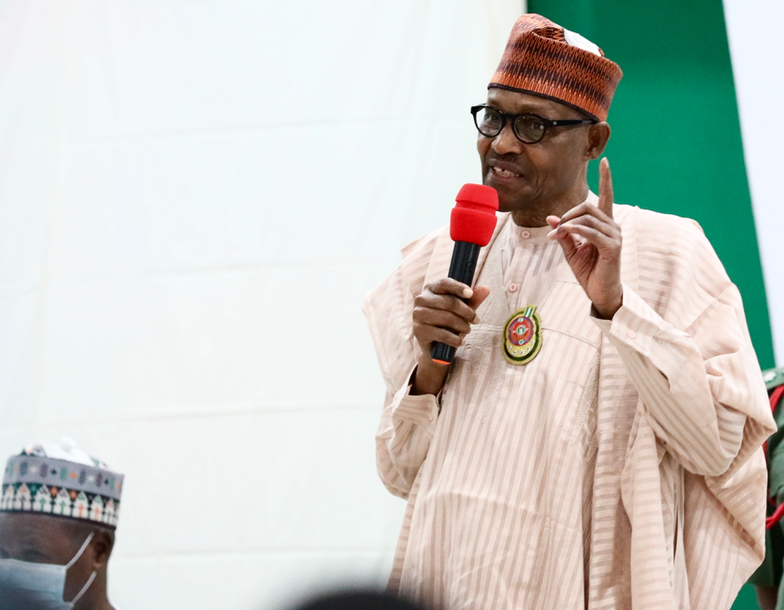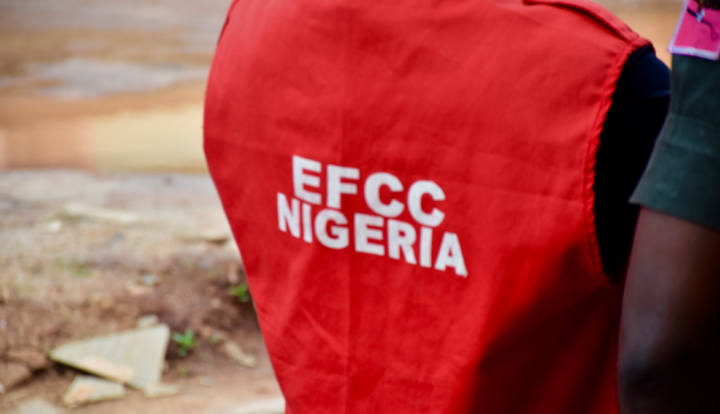Alhaji Lateef Kayode Jakande, the first executive Governor of Lagos State (1979-1983) who died on Thursday, 11 February 2021 at 91, was a rare combination of administrative genius in public governance and humility, even self-effacement, in personal life. He was a remarkable giant in public life who never made anyone feel small in his presence. Without doubt, Jakande was one of the ablest public administrators that the country has ever produced.
An encounter with the man popularly called LKJ by one of the top aides of Asiwaju Bola Tinubu illustrates the profound modesty of the spartan politician. Jakande, as the aide told me a few years ago, was in the governor’s office to see Tinubu. He had obviously announced his presence to one of the assistants in the governor’s outer office. Incidentally, he conceived and started the construction of that building. But he never occupied the office before the military seized power in December 1983. Perhaps the governor’s assistants were either too ignorant about who Jakande was or, because of his humble mien, they didn’t think he was important or relevant enough for his presence to be immediately brought to the attention of Tinubu. He was made to wait. The top aide to Tinubu came into the outer office and found Jakande waiting among many others. He was embarrassed. It was apparent to him that the former governor had been waiting for a while. Fortunately, Jakande didn’t notice the top aide, who he knew well. The latter quickly dashed in to ask Tinubu if he knew his predecessor was in the waiting room. Tinubu expressed surprise. No one had informed him that Jakande was there. He asked the top aide to usher the former governor in immediately. What other Nigerian politician of Jakande’s stature and special connection to that office and the building would suffer such blatant disregard with comparable equanimity?
LKJ whose other popular appellation was Baba Kekere, a salute to his rank within the Chief Obafemi Awolowo political family, was such a man: an accomplished and conscientious administrator and manager of (wo)men and resources whose deep inner peace and ascetic simplicity were never disturbed by either the exuberance of office and public ranking or the difficulties and scorns that the vagaries of public life attracted. He was an incorruptible man who was never incorrigible. For several decades in and out of corporate and public offices, he lived in his Bishop Street, Ilupeju private residence in Lagos. In this, he had learned a crucial lesson from his leader, Awolowo, who resisted the temptations that the transition from home to official residence and vice versa constituted – among many other challenges of the passage of power in Africa.
As Governor Tinubu said in his tribute, “Whatever we have been able to accomplish in Lagos State is because of the groundwork … Jakande set out before us. In so many ways, he is the inspirational father of modern Lagos State. In housing, education, health care, and road construction, he left an indelible imprint.” Tinubu should know. He inherited this tradition of efficient and effective governance championed by the likes of Jakande which was based on a progressive ideology that was identified with the Western Region of Nigeria and its succeeding states. However, this is threatening to become the exclusive heritage of Lagos State.
Advertisement
Three of the most notable manifestations of LKJ’s administrative genius are worth remembering, especially for the younger generation of Nigerians who are unfamiliar with what constitutes a proper political party and what it means to methodically and consistently execute the programmes and policies upon which a political party canvassed for votes. First was in the area of education. The Jakande administration was quick in executing the free primary and secondary education programme of the Unity Party of Nigeria (UPN). Putting all the children of school age in Lagos into school while ending fee-based schooling in all schools within a short period was a massive endeavour. It involved the government take-over of all existing schools, including mission schools, and also the establishment of many more schools to accommodate the explosion in school enrolment. The urgent and massive need for the construction of new classrooms forced Jakande to take a pragmatic approach. His administration built a particular kind of new schools or added new classrooms to existing ones. Critics, particularly opposition elements and members of the upper middle class in Lagos, derided the ‘Jakande schools’ as some glorified concrete chicken pens or coops because they were built to lintel level with added metal poles that held the roof in place. But, as these classrooms sprang up all over Lagos, those who recognised the transformation that was afoot acknowledged the egalitarian pragmatism that necessitated the choice that was made by the government. Jakande was more concerned with the effectiveness of the free education policy than the aesthetic value of the buildings. He recognised that, in the first iteration of the policy by the predecessor political party in the 1950s, the Action Group (AG), some beneficiaries were even happy to gather under trees before buildings were ready to accommodate the explosion in enrolment for primary education.
As every child in Lagos headed for school with no concern about the cost to their parents and with even school uniforms supplied free along with free meals, it became apparent that the old ethos of leapfrogging the Lugardian contraption to modernity, which was started in 1955 in the Western Region and aborted by military intervention in 1966, had returned with a new vigour. While many spoke to national unity and pretended that they cared more about this, Jakande operationalised it. No other state in Nigeria had a greater representation of the multiple ethnic and religious identities in Nigeria than Lagos. Jakande cared for every child of school age no matter where they came from.
Undoubtedly, there were several problems with the implementation of this policy. Yet, these were understandable challenges of massive social transformation. Though the process of our instruction was affected in part by the some of these challenges, those of us described then as omo Jakande (Jakande’s children) later appreciated the massive transformation in the lives of several thousands of kids and their families wrought by the policies and actions of this most able of public administrators.
Advertisement
The second was in the area of housing. Low-cost housing was one of the central programmes of Jakande’s administration. Affordable housing was – and remains – a major challenge in Lagos. In response to this, LKJ started massive low-cost housing projects all over the state. In this too, there were many administrative impediments to the successful implementation of a laudable project. Yet, his administration completed many housing projects from Oke-Afa and Amuwo-Odofin to Surulere and Ikorodu. Again, what this scheme reflected was Jakande’s recognition of the critical role of the state in intervening in the social process which, at this moment in Nigeria’s evolution, constituted an important reflection of the kind of social democracy that he and his political party espoused.
The third was the metroline project. Apart from the free education programme, this potential high-impact project was one of the greatest demonstrations of the modernist and transformative agenda of the Jakande administration. It was designed not only to address the perennial problem of traffic congestion in Lagos, but also as part of the instruments for economic renaissance in the city-state. It was therefore the most critical, most imaginative response to the problem of urban transportation. It was designed to ensure that Lagos joined other global cities in providing true mass transit. If it had been implemented, the metroline would have transformed Lagos forever. Thus, we cannot overemphasise the importance of this project.
Though it was not implemented, the project revealed three things about Jakande and the political camp that produced him. One, it revealed the massive transformative vision, principles, policies that were the signal assets of the Unity Party of Nigeria which made the party, among all others in the Second Republic, a superior instrument for gaining and deploying state power in the service of the common good. While some parties on the right such as the National Party of Nigeria (NPN) were only invested in power and domination and others on the left cared more about ideological purity and discourses than the challenging and messy work of genuine social transformation, the UPN under Awolowo’s leadership was an ideologically pragmatic instrument of rule that had an unparalleled clarity as to the means, modes and capacities for social transformation in the Nigeria of that age – as reflected in its Four Cardinal Programmes. Two, it showed that Jakande, perhaps more than any of his contemporaries, not only understood how the social transformation so conceived was to be achieved in a conurbation such as Lagos, but that he also had the vision to organise the most effective and efficient ways to accomplish the set goals in the context of the specific realities of that era. Three, starting the project confirmed Jakande’s place as, administratively speaking, one of the most remarkable strategic thinkers that Nigeria has ever produced. However, the abortion of this project (which eventually cost the state and the country as much money in arbitration as would perhaps have been needed to finish the project) was not only a sign of the myopia and heedlessness of the Major General Mohammadu Buhari regime, it was also a stark reflection of the nature of Nigeria’s ‘federalism’ and military rule. That a class of retrograde soldiers who had neither a rudimentary understanding of the progressive principles nor of the developmental values behind this vision could hijack the instruments of federal power and, with fiat, terminate one of the most important means of urban transformation again reminds of the problems of the Nigerian state and Nigerian federalism. We are still living with the consequences of this terrible decision. Almost four decades after the Buhari regime aborted this project, Lagos is still trying to build a similar project – with incalculably higher ratio in cost. Yet, the state has not succeeded. Two quick lessons here. One is the real and multiplier effects of efficient governance that is the tradition of progressive politics in western Nigeria, and two is the devastating and long lasting impact of the atavism called military rule, particularly the most invidious type that was experienced in Nigeria, and its concomitant subversion of federal principles.
Beyond infrastructures, LKJ’s style of leadership remains part of his legacy. His sartorial simplicity, including the signature horsetail fly whisk, amiable bearing and easy smile will be missed. I still recall vividly the first time I saw him as a student in one of the new schools he created. We lined the street of our school as his convoy drove by. He smiled and waved his fly whisk from inside his personal car (which was also his official car) as we waved back to him.
Advertisement
At the Nigerian Tribune, where I later worked, we heard stories about the era of John West (his pen name), as editor-in-chief and managing director. Apart from his monumental contribution to the profession of journalism and the institution of the Fourth Estate, his old line-editors and reporters at Tribune often recalled his extraordinary work ethic, unflappability as well as his editorial and personal integrity. Although he later had a particularly unpleasant conflict with his leader, former employer, and co-shareholder in the African Newspapers of Nigeria, publishers of the Tribune, which, it can be argued, exposed a part of the shrewdness of the otherwise unassuming man, this could not erase his monumental contributions to the longest surviving newspaper in Nigeria.
Though Jakande was a social democrat and a man of great conviction, he was no rash ideologue. As the governor of the capital city-state, it was said that he met with President Shehu Shagari weekly and also met his leader, Awolowo, weekly as well. While some members of the party were somewhat dubious about the value of regular meetings with the leader of the ruling party which they believed stole their leader’s mandate, Awolowo understood Jakande’s outreach.
Like most politicians, Jakande was a man of ambition. He really wanted to be president of Nigeria. He knew he had the capacity, despite his limitations regarding formal education, as his adversaries were often eager to point out. LKJ recognised, correctly, that, apart from his leader, there were few in the country who could claim to have the administrative competences which he possessed in abundance. What LKJ lacked in intellectual finesse, he more than made up for in practical and effective planning and administrative genius; what he lacked in political oratory, he made up for in personal decency. Until he gambled away his pre-eminence in Lagos politics in the course of the June 12 crisis, the politics of Lagos was largely dictated by Jakande. Long before Tinubu, Jakande was the paterfamilias of Lagos progressive political camp. Babagana Kingibe will not quickly forget the lesson that Jakande taught him in the Third Republic about Lagos politics. Kingibe, in his initially subtle but increasingly brazen attempt as National Chairman to hijack the entire machinery of the Social Democratic Party from his patron, Major General Shehu Musa Yar’Adua, and the other established figures in progressive politics through the imposition of his favoured candidates in the party’s governorship races, forced the old political warhorse to show him – as they say in LKJ’s culture – that, if an adolescent has as much clothes as the elderly, s/he cannot have as much threadbare clothes. Jakande instructed his supporters to vote for the SDP candidates down the ballot all over Lagos but to reject Kingibe’s imposed governorship candidate by voting for the candidate of the rival party, Michael Otedola. It was the one and only time that a non-progressive politician would win election as governor of Lagos State.
Perhaps the gravest error of Jakande’s political life was his decision to join the Abacha regime as Works and Housing Minister. It was an original error that he had to live with until the end of his days. Partly a result of personal ambition and partly an attempt to leverage the political confusion of that period into a workable political transition that could lead to democratic rule, particularly given the initial lack of clarity by the symbol of that struggle, Moshood Abiola (whether more of the later than the former is still in dispute), LKJ joined the regime of the man who turned out to be the most vicious ruler in Nigeria’s history. Even as it became apparent that Abacha was a power monger who saw Nigeria as a lootable resource, LKJ refused to relinquish the illusion that the ignoble regime was a path to national political reconstitution. Some of his old comrades saw this as yet another manifestation of the same ambition to upstage his leader and run for the presidency in the Second Republic which led him to stand trial at the UPN NEC meeting in Yola in 1982 – and which almost led to his expulsion from the party, as explained in my book on the political movement, Yoruba Elites and Ethnic Politics in Nigeria: Obafemi Awolowo and Corporate Agency.
Advertisement
By the time he was removed from office by Abacha, Baba Kekere could no longer claim his place among the progressive political clan to which he properly belonged – one which he was also qualified to lead. He was ostracised by his old comrades. In his inimitable way, Jakande accepted his fate and stayed out of the fratricidal battle among the Awoists in the lead up to the Fourth Republic. Yet, his ostracisation was a damning verdict on a moment of political indiscretion and a lesson in how the mess of politics can turn an able administrator and excellent political leader into a disabled spectator in the gallery of power politics. Though he seemed to have reconciled himself to this harsh judgement by not even attempting to be reconciled with his old allies, Jakande bore no grudges. You could never find him giving interviews steeped in rancour and accusations against his erstwhile fellow political travellers. He was a forgiving man, though one who was hardly ever forgiven. As Nigeria produced one incompetent president after another and as the fratricidal battle induced by the Nigerian tragedy consumed the progressive political camp to which he legitimately belonged, and of which he remained a great advertisement in public governance, LKJ could only watch from the side lines, humbled by age and the apparent loss of political traction.
Indeed, such was the fatal nature of this error that a revisionist history began to bubble about LKJ’s place in the history of progressive politics, public governance and the modernist project in Nigeria. The fact is that, despite his political errors, Jakande’s place in this history remains solid. His errors will be noted and can still be chastised, but above all else, his contributions will continue to be honoured and celebrated. It was as if Providence kept him alive longer than all of his contemporaries to give us all enough time not only to forgive his political transgressions but also to reflect on his administrative genius, especially as that genius even bore more fruits in the Lagos of the Fourth Republic – the state which has, arguably, been a consistently better governed state than all the others in the current Republic. As undoubtedly his latter successors, particularly Governors Bola Tinubu and Babatunde Fashola would readily admit, it was Jakande who laid the foundations for the building of modern Lagos. Thus, contemporary Lagos is a testament to LKJ’s vision, administrative brilliance and personal austerity.
Advertisement
Jakande was a devout Muslim who was at peace with other forms of devotion. Like his leader, he was a faithful husband and noble father. Apart from his commitment to egalitarian politics, nothing delighted him more than his union with his devoted wife, Sikirat Abimbola Jakande, who also mirrored Hannah Idowu Dideolu Awolowo’s own devotion to her husband. Jakande’s personal and political life could not have been the success that it was without the self-effacing but steadfastly warm Abimbola. If you ever visited their home and witnessed the way Abimbola treated Jakande, you would know that she was partly the reason why he enjoyed life for as long as he did.
As we bid Jakande farewell, it is important to note that there goes one of the ablest administrators in our national history.
Advertisement
Good night, LKJ.
Adebanwi, author of Yoruba Elites and Ethnic Politics in Nigeria: Obafemi Awolowo and Corporate Agency, writes from Oxford, UK.
Advertisement
Views expressed by contributors are strictly personal and not of TheCable.
Add a comment
